Kamala Harris endorses Joe Biden; Jesse Jackson backs Bernie Sanders
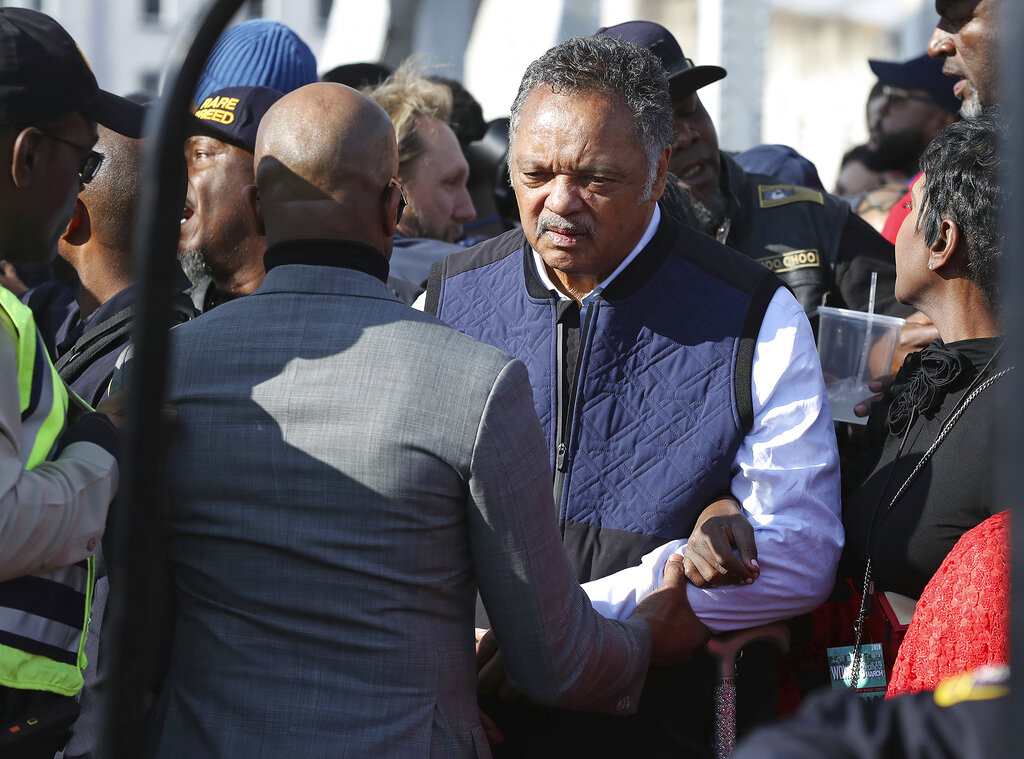
Biden and Sanders have been consolidating their support since Super Tuesday.
Bernie Sanders struggles to expand supporter base after Elizabeth Warren exit
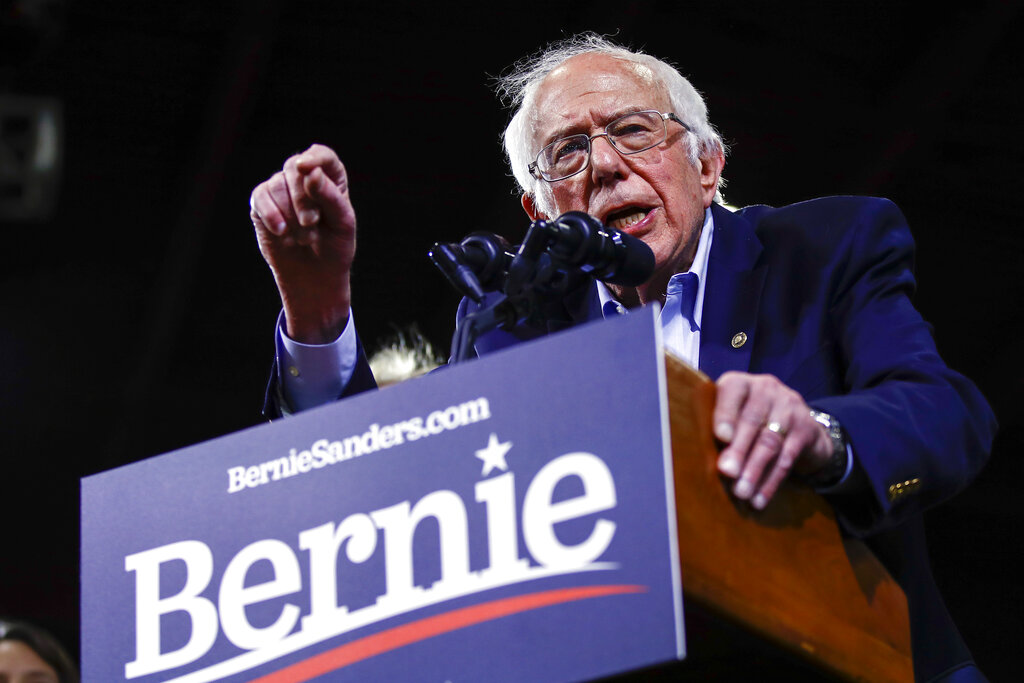
Elizabeth Warren declined to endorse anyone when she suspended her campaign for President.
On Super Tuesday eve, Joe Biden gets boost from former rivals
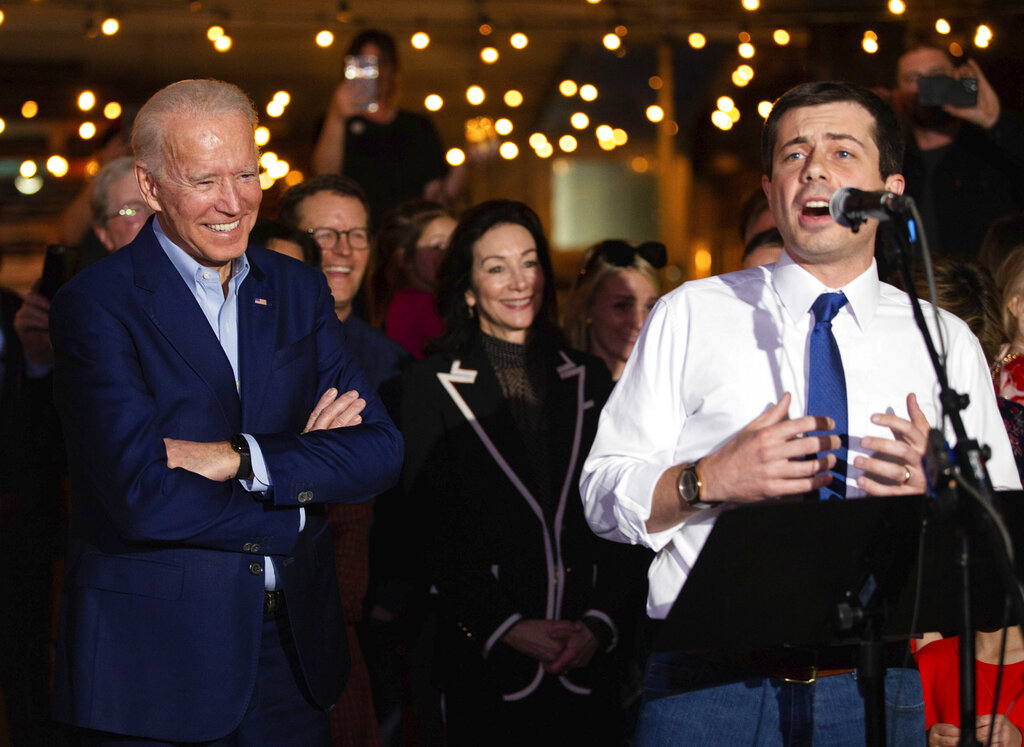
Biden received the support of former rivals, Pete Buttigieg and Amy Klobuchar.
Amid Iran and impeachment, Donald Trump’s focus is reelection
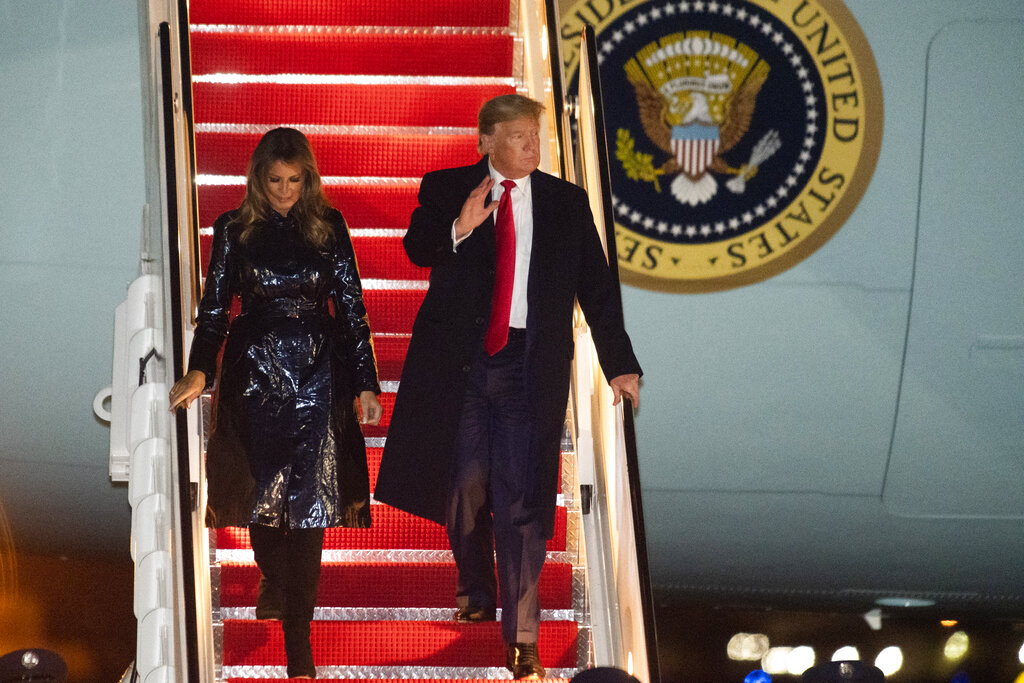
Donald Trump is being attacked on two sides.
Turbulence shakes democrats going into final debate of 2019
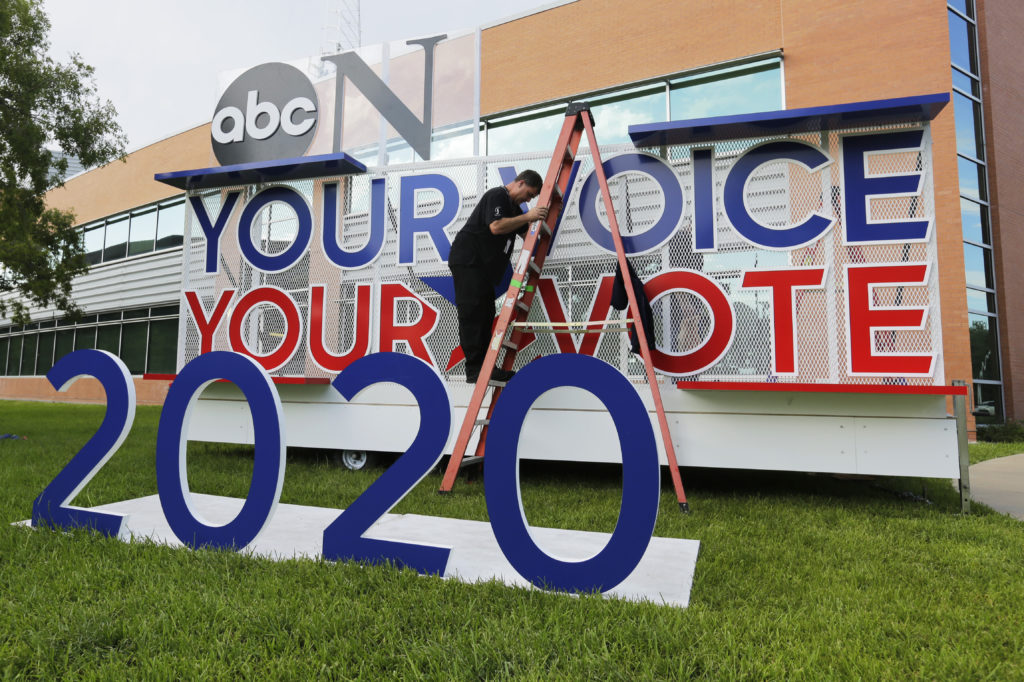
Seven Democratic presidential candidates will stand on stage this week in Los Angeles, a pool of survivors who have withstood almost a year on the campaign trail, sustained attacks from rivals in both major political parties and five rounds of high-pressure debates. And while the field has been effectively cut down from more than 20 in the span of six months, a deepening sense of volatility is settling over the Democratic primary on the eve of the sixth and final debate of 2019. The remaining candidates, those in the debate and some trying to compete from outside, are grappling with unprecedented distraction from Washington, questions about their core principles and new signs that the party’s energized factions are turning against each other. Lest there be any doubt about the level of turbulence in the race, it’s unclear whether Thursday’s debate will happen at all given an unsettled labor union dispute that might require participants to cross a picket line. All seven candidates have said they would not do so. The Democratic dilemma is perhaps best personified by Elizabeth Warren, whose progressive campaign surged through the late summer and fall but is suddenly struggling under the weight of nagging questions about her health care plan, her ability to compete against President Donald Trump and her very authenticity as a candidate. Boyd Brown, a South Carolina-based Democratic strategist who recently decided to back Joe Biden only after his preferred candidate, Beto O’Rourke, was forced from the race, likened Warren’s position to that of someone falling down a mountain grasping for anything to slow her descent. “She’s got real problems,” Brown said. Warren has avoided conflict with her Democratic rivals for much of the year, but she has emerged as the chief antagonist of the leading candidates in the so-called moderate lane, former Vice President Joe Biden and Mayor Pete Buttigieg of South Bend, Indiana. Seven weeks before Iowa’s Feb. 3 caucus, the Massachusetts senator is attacking both men with increasing frequency for being too willing to embrace Republican ideas and too cozy with wealthy donors. Those close to Warren hope the strategy will allow her to shift the conversation away from her own health care struggles back to her signature wealth tax and focus on corruption. Yet she could not escape questions about her evolving position on Medicare for All as she campaigned in Iowa over the weekend. When asked about health care, Warren told a crowd of roughly 180 people in the Mississippi River town of Clinton, Iowa, about a plan to expand insurance coverage without immediately moving to a universal, government-run system. She promised that those who wanted government health insurance could buy it before finally concluding, “At the end of my first term, we’ll vote on Medicare for All.” The next question came from a man who said he was on Medicare and mostly happy about it, but had lingering issues. “You call it Medicare for All and it’s better. Can’t you change the name?” he asked of her proposal. “I like your suggestion,” Warren responded, in a tone suggesting she wasn’t entirely joking. “Let’s call it health care for everybody.” She later added, “Let’s call it better than Medicare for All. I’m in.” Even entertaining a name change seemed to mark yet another shift for Warren, who first co-sponsored Medicare for All in 2017, but began pivoting away from the proposal after experts questioned the plan she released in October to pay for it without raising middle-class taxes. She subsequently released a “transition plan” promising to get Medicare for All approved by Congress by the end of her third year as president while relying on existing insurance plans, including those established by Obamacare, to expand health coverage in the interim. Warren’s Democratic critics suggest her evolution on the issue has stalled her momentum because it goes beyond a policy dispute and raises broader questions about what may be the most important personal quality in politics: authenticity. Indeed, Buttigieg, Biden and other rivals have seized on her shifts. Even Bernie Sanders, Warren’s progressive ally and Medicare for All’s author, seemed to pile on by promising to send a full bill to Congress implementing the measure during the first week of his administration. Without naming any of his rivals, Biden adviser Symone Sanders said candidates would not succeed in shifting the conversation away from health care this week even if they wanted to. She said to expect another “robust exchange” on the issue, which “is not going away and for good reason, because it is an issue that in 2018 Democrats ran on and won.” Tough questions for Warren haven’t just come from her rivals. Since Thanksgiving, she’s shortened her typically 30-minute and more stump speech to around 10 minutes and used the extra time to take more audience questions — only to be forced further on the defensive about health care. Barton Wright, a 69-year-old technical writer, pressed Warren on Medicare for All at a recent event in Rochester, New Hampshire, noting after the event that he wants a deeper explanation. “It just sounds awful,” Wright said. “It sounds ‘like Hemlock for All’ for people who don’t like Medicare. And that’s a lot of people.” Even after questioning Warren, however, Wright said he was helping her campaign and still plans to vote for her. Meanwhile, Buttigieg, the surprise member of the top-tier, is grappling with issues of his own that expose another fissure between the moderate and progressive wings of the party. Protesters aligned with Warren and Sanders tracked him across New York City last week banging pots and pans and calling him “Wall Street Pete” as he continued his aggressive courtship of wealthy donors. The 37-year-old seemed genuinely confused by the protests, which he was forced to acknowledge during at least one Manhattan fundraiser because the noise outside was so loud. As he faced supporters in Seattle over the weekend, Buttigieg acknowledged that the intra-party attacks will almost certainly continue, although he tried to downplay the intensity of the
Gun background checks are on pace to break record in 2019

Background checks on gun purchases in the U.S. are climbing toward a record high this year, reflecting what the industry says is a rush by people to buy weapons in reaction to the Democratic presidential candidates’ calls for tighter restrictions. By the end of November, more than 25.4 million background checks — generally seen as a strong indicator of gun sales — had been conducted by the FBI, putting 2019 on pace to break the record of 27.5 million set in 2016, the last full year President Barack Obama was in the White House. On Black Friday alone, the FBI ran 202,465 checks. Some analysts question how accurately the background check figures translate into gun sales, since some states run checks on applications for concealed-carry permits, too, and some purchases involve multiple firearms. But the numbers remain the most reliable method of tracking the industry. In the years since President Donald Trump took office, the industry has struggled through what has been referred to as the Trump Slump, a falloff in sales that reflected little worry among gun owners about gun control efforts. But with the 2020 presidential election less than a year out and virtually every Democratic candidate offering proposals to restrict access to firearms, fears appear to be driving up sales again. “The Trump Slump is real, but the politics of guns has changed a little bit over the last year,” said Adam Winkler, a professor at the University of California, Los Angeles, School of Law and an expert on gun rights and politics. “As we’re coming up upon another presidential election, Donald Trump is vulnerable, and the Democratic presidential contenders are falling all over themselves to propose more aggressive gun reforms than their opponents.” Trump has been viewed as one of the most gun-friendly presidents in modern history and has boasted of strong support from the National Rifle Association. He has addressed every one of its annual conventions since the 2016 campaign, and the powerful gun lobby pumped about $30 million into efforts to elect him. Still, hopes of expanded gun rights under Trump’s watch haven’t materialized. Legislation that would make it easier to buy silencers stalled in Congress. In addition, Trump pushed through a ban on bump stocks, which allow semiautomatic rifles to mimic machine-gun fire. The gunman who killed 58 people in Las Vegas in 2017 in the deadliest mass shooting in modern U.S. history used such a device. The industry has been going through one of its toughest periods, with some gunmakers, such as Remington Arms, filing for bankruptcy. More recently, Smith & Wesson’s parent company, American Outdoor Brands, announced plans to spin off its firearms unit, and Colt said it would suspend production of AR-15 rifles. Amid some high-profile mass shootings in recent years, especially the Parkland school attack in Florida that left 17 people dead, gun control advocates have gained some momentum. The crowded field of Democrats running for the White House has offered a variety of proposals to curtail gun rights. Former Texas Rep. Beto O’Rourke, whose state has seen repeated mass shootings this past year, went so far as to push for a mandatory buyback program for Arizona and Arkansas style rifles before dropping out of the race, stoking gun owners’ fears when he declared during a debate, “Hell, yes, we’re going to take your AR-15, your AK-47.” The gun industry says the figures from the National Instant Criminal Background Check System reflect the Second Amendment politics of the White House race. “Americans are choosing to invest their hard-earned dollars in their ability to exercise their rights and buy the firearms they want before gun control politicians attempt to regulate away that ability,” said Mark Oliva, spokesman for the National Shooting Sports Foundation, which represents the gun industry. Still, some experts took issue with the figures and said it is premature to declare the Trump Slump is over. “These numbers cannot be taken be taken at face value,” said Jurgen Brauer, a retired business professor and now chief economist at Small Arms Analytics, which consults on the firearms industry. Brauer said the numbers are increasingly skewed by states such as Kentucky that also run background checks when they issue or renew a permit to carry a concealed firearm. In October, for example, the state ran more than 280,000 checks through the NICS system for permits. “That number has been rising over time as increasingly states check with some frequency on their existing permits,” Brauer said. The NICS system was created after passage of the Brady Bill, which mandated background checks to buy a firearm. Convicted felons, domestic abusers and people who have been involuntarily committed to a mental institution are among those who cannot legally purchase a weapon. In 1999, the first full year the system was used, just over 9 million background checks were conducted. It was near the end of Democrat Bill Clinton’s second term and in the midst of a 10-year ban on assault rifles that expired in 2004. Background checks declined under President George W. Bush but picked up again in 2006 and have mostly risen since then, except for 2014 and 2017. In 2018, there were 26.18 million background checks. “Gunmakers are promoting the idea that you should buy these guns now because they may be banned in the future,” Winkler said. This story has been corrected to delete the number of seconds per background check on Black Friday. By Lisa Marie Pane Associated Press. Republished with the Permission of the Associated Press.
Takeaways: Elizabeth Warren under fire, 70s club ignores the age issue
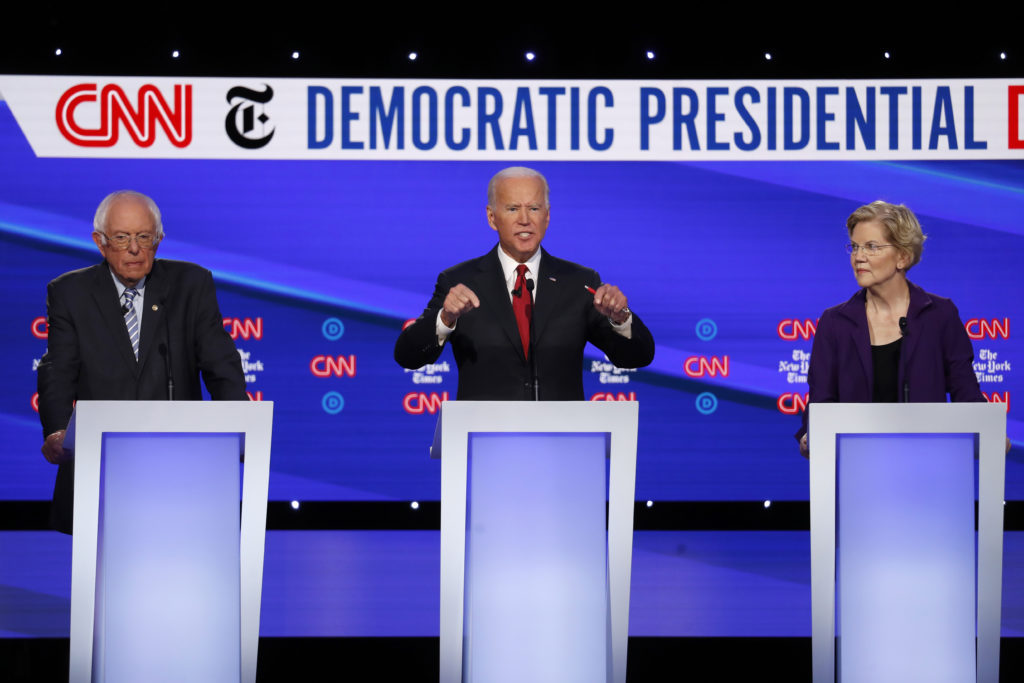
A dozen democratic presidential candidates participated in a spirited debate over health care, taxes, gun control and impeachment. Takeaways from the three-hour forum in Westerville, Ohio: WARREN’S RISE ATTRACTS ATTACKS Sen. Elizabeth Warren found Tuesday that her rise in the polls may come with a steep cost. She’s now a clear target for attacks, particularly from more moderate challengers, and her many plans are now being subjected to much sharper scrutiny. Minnesota Sen. Amy Klobuchar and South Bend, Indiana, Mayor Pete Buttigieg slammed her for not acknowledging, as Vermont Sen. Bernie Sanders has, that middle-class taxes would increase under the single-payer health plan she and Sanders favor. “At least Bernie’s being honest with this,” Klobuchar said. “I don’t think the American people are wrong when they say what they want is a choice,” Buttigieg told Warren. His plan maintains private insurance but would allow people to buy into Medicare. Candidates also pounced on Warren’s suggestion that only she and Sanders want to take on billionaires while the rest of the field wants to protect them. Former Texas Rep. Beto O’Rourke told Warren it didn’t seem as though she wanted to lift people up and she is “more focused on being punitive.” And they piled onto her signature proposal, a 2 percent wealth tax to raise the trillions of dollars needed for many of her ambitious proposals. Technology entrepreneur Andrew Yang noted that such a measure has failed in almost every European country where it’s been tried. Sen. Kamala Harris of California even went after Warren for not backing Harris’ call for Twitter to ban President Donald Trump. THAT 70s SHOW The stage included three 70-something candidates who would be the oldest people ever elected to a first term as president — including 78-year-old Sanders, who had a heart attack this month. Moderators asked all three how they could do the job. None really addressed the question. Sanders invited the public to a major rally he’s planning in New York City next week and vowed to take the fight to corporate elites. Biden promised to release his medical records before the Iowa caucuses next year and said he was running because the country needs an elder statesman in the White House after Trump. Warren, whose campaign has highlighted her hours-long sessions posing for selfies with supporters, promised to “out-organize and outlast” any other candidate, including Trump. Then she pivoted to her campaign argument that Democrats need to put forth big ideas rather than return to the past, a dig at Biden. ONE VOICE ON IMPEACHMENT The opening question was a batting practice fastball for the Democratic candidates: Should Trump be impeached? They were in steadfast agreement. All 12 of them. Largely with variations on the word “corrupt” to describe the Republican president. Warren was asked first if voters should decide whether Trump should stay in office. She responded, “There are decisions that are bigger than politics.” Biden, who followed Sanders, offered a rare admission: “I agree with Bernie.” The only hint of dissonance came from Rep. Tulsi Gabbard of Hawaii, who was one of the last Democratic House members to back an impeachment inquiry. She lamented that some Democrats had been calling for Trump’s impeachment since right after the 2016 election, undermining the party’s case against him. KLOBUCHAR: MINNESOTA NOT-SO-NICE Klobuchar has faded into the background in previous debates, but she stood out on the crowded stage. She also went on the attack. She chided Yang for seeming to compare Russian interference in the 2016 election to U.S. foreign policy. But her main barbs were reserved for Warren. “I appreciate Elizabeth’s work but, again, the difference between a plan and a pipe dream is something you can actually get done,” she said. After Warren seemed to suggest other candidates were protecting billionaires, Klobuchar pounced. “No one on this stage wants to protect billionaires,” Klobuchar said. “Even the billionaire doesn’t want to protect billionaires.” That was a reference to investor Tom Steyer, who had agreed with Sanders’ condemnation of billionaires and called for a wealth tax — despite the fact that his wealth funded his last-minute campaign to clear the debate thresholds and appear Tuesday night. Klobuchar also forcefully condemned Trump’s abandonment of the Kurds in Syria. BOOKER THE PEACEMAKER New Jersey Sen. Cory Booker has been trying to campaign on the power of love and unity. It hasn’t vaulted him to the top of the polls, but it drew perhaps the biggest cheers from the crowd Tuesday night. As candidates bickered over their tax plans, Booker shut it down. “We’ve got one shot to make Donald Trump a one-term president and how we talk about each other in this debate actually really matters,” he said. “Tearing each other down because we have a different plan is unacceptable.” Later, as candidates tussled over foreign policy and Syria, Booker again tried to bring the debate back to morals. “This president is turning the moral leadership of this country into a dumpster fire,” he said, before launching into a furious condemnation of Trump’s foreign policy. The New Jersey senator’s inability to break out of the pack has puzzled Democrats who long saw him as a top-tier presidential candidate. By Nicholas Riccardi Associated Press Republished with the permission of the Associated Press.
Key takeaways from the 2020 democratic candidates’ debate
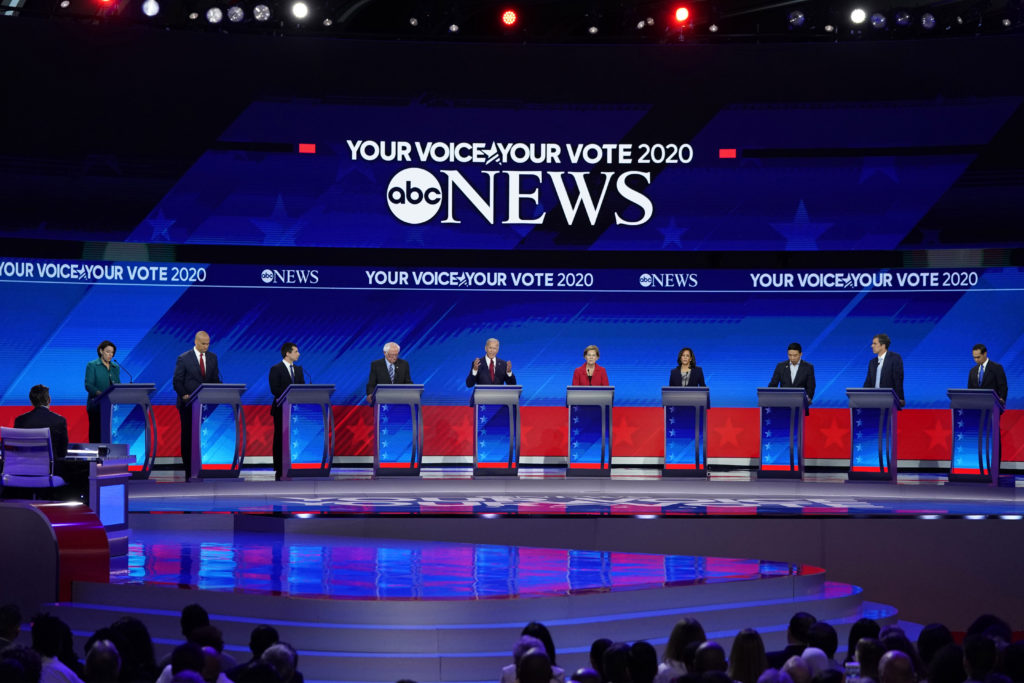
Democratic debate night No. 3: Attacks and counter-attacks. Love for one former president, loathing for the current one. A 76-year-old front-runner essentially got called old, and he turned around and called another rival a “socialist.” But will it change the fundamentals of a nominating fight that remains remarkably stable at the top with five months until voting begins? Here’s a look at some takeaways and potential answers: STATUS QUO PREVAILED The third Democratic debate seemed to end in a 10-way tie. Former Vice President Joe Biden was sure-footed (until the end), at least for him and compared with the previous two debates. There were more attacks on President Donald Trump than on each other. No one dominated. Biden took on the most fire, but parried it and, as front-runner, benefits the most from a no-decision. Sen. Bernie Sanders faced sharp criticism about his universal health care plan from several candidates, but his base has demonstrated its loyalty. Sen. Elizabeth Warren was more in the background than in prior debates but didn’t damage herself, and she closed with a compelling personal story. Sens. Kamala Harris and Cory Booker were both crisp but got lost on the crowded stage at times. Mayor Pete Buttigieg, former Rep. Beto O’Rourke and Sen. Amy Klobuchar helped form a sensibility caucus, offering pragmatism and civic-mindedness. Andrew Yang, a tech entrepreneur, spoke eloquently about immigration and assured himself a mention with his proposal to give 10 families $1,000 a month, from his campaign. The normally mild-mannered Julián Castro, a former Housing secretary, decided that attacking Biden, often in personal terms, was one way to get noticed. The likely result: little change in a primary that has been remarkably static for months. FIGHT THAT DIDN’T BREAK OUT The first matchup between Biden and Warren had so much anticipation — and so little fireworks. There were a few criticisms of Warren on health care, though she not directly answer whether her plan would raise taxes on the middle class. During a discussion on trade, Biden even said he agreed with Warren’s call to bring labor to the table. Certainly, the head-to-head confrontation will come if Biden continues as the front-runner and Warren maintains her momentum as perhaps the most likely progressive alternative. But perhaps the two campaigns were right after all when they said privately before the debate that September — five months before the Iowa caucuses — isn’t necessarily the time for a titanic fight at the top of the field. BERNIE BATTERED ON HEALTH CARE Sanders took heavy fire on his single-payer health insurance proposal, with Biden and others hammering the Vermont senator for the cost and the political palatability of effectively eliminating the existing private insurance market. The former vice president went hardest at Sanders when the senator argued that his estimated $30 trillion cost over a decade is cheaper than the “status quo,” which he put at $50 trillion — with most of the money being what Americans spend privately on premiums, co-pays and out-of-pocket costs. Sanders’ argument is that most U.S. households would pay less overall under his system, even if their taxes go up. Biden roared that Sanders would effectively be handing Americans a pay cut, arguing employers who now pay a share of workers’ premiums would pocket that money instead of giving workers raises if the government were to cover all health care costs. Biden punctuated the point with one of the quotes of the night: “For a socialist, you’ve got a lot more confidence in corporate America than I do.” Buttigieg piled on Sanders, too. Buttigieg said he “trusts the American people to make the right decision” between private insurance and a public option. “Why don’t you?” he asked Sanders. OF AGE AND EXPERIENCE At the center of the debate stage were three candidates in their 70s who have had a collective headlock on the upper tier for months. Of the seven younger contenders, Castro, 44, was most explicit in arguing it was time for a new generation — and he specifically targeted the front-runner, 76-year-old Biden. “Our problems didn’t start with Donald Trump,” Castro said in his opening statement. “We won’t solve them by embracing old ideas.” Castro also seemed to allude to speculation about Biden’s mental acuity during an exchange about health care. When Biden denied that his health plan required people to buy into Medicare, Castro exclaimed, “Are you forgetting what you said 2 minutes ago?” He continued to suggest Biden didn’t remember what he’d just said about his own plan. Later, during a discussion about deportations under the Obama administration, Castro mocked Biden for clinging to former President Barack Obama, but then saying he was only vice president when Obama’s conduct was questioned. “He wants to take credit for Obama’s work but not answer any questions,” Castro said. MONEY FOR NOTHING Yang is an unorthodox candidate, and he came to the debate with an offer to match his persona: a proposal to use his campaign funds to pay 10 randomly-selected families $1,000 a month. Yang announced the maneuver in his opening statement. It’s intended to illustrate the center of his quixotic campaign, to provide monthly $1,000 payments to all Americans 18 and over. After lamenting how the country is in thrall to “the almighty dollar,” Yang, 44, urged viewers to go to his campaign website and register for the contest to win the money.His offer drew cheers from the audience and chortles from some of the other candidates onstage. “It’s original, I’ll give you that,” Buttigieg said. By Bill Barrow and Nicholas Riccardi Associated Press. Republished with the permission of the Associated Press.
Democratic debate: Top 2020 contenders finally on same stage

Progressive Democrats Elizabeth Warren and Bernie Sanders share the debate stage for the first time with establishment favorite Joe Biden Thursday night in a prime-time showdown displaying sharply opposing notions of electability in the party’s presidential nomination fight. Biden’s remarkably steady lead in the crowded contest has been built on the idea that the former vice president is best suited to defeat President Donald Trump next year — a contention based on ideology, experience and perhaps gender. Sanders and Warren, meanwhile, have repeatedly criticized Biden’s measured approach, at least indirectly, by arguing that only bold action on key issues like health care, the economy and climate change can build the coalition needed to win in 2020. The top-tier meeting at center stage has dominated the pre-event talk, yet each of the other seven candidates hopes for a breakout moment with the attention of the nation beginning to increase less than five months before the first primary votes are cast. “For a complete junkie or someone in the business, you already have an impression of everyone,” said Howard Dean, who ran for president in 2004 and later chaired the Democratic National Committee. “But now you are going to see increasing scrutiny with other people coming in to take a closer look.” The ABC News debate is the first limited to one night after several candidates dropped out and others failed to meet new qualification standards. A handful more candidates qualified for next month’s debate, which will again be divided over two nights. Beyond Biden and Sens. Warren and Sanders, the candidates on stage Thursday night include Minnesota Sen. Amy Klobuchar, New Jersey Sen. Cory Booker, South Bend, Indiana, Mayor Pete Buttigieg, California Sen. Kamala Harris, New York businessman Andrew Yang, former Texas Rep. Beto O’Rourke and former Obama administration Housing chief Julian Castro. Viewers will see the diversity of the modern Democratic Party. The debate, held on the campus of historically black Texas Southern University, includes women, people of color and a gay man, a striking contrast to the Republicans. It will unfold in a rapidly changing state that Democrats hope to eventually bring into their column. Perhaps the biggest question is how directly the candidates will go after one another. Some fights that were predicted in previous debates failed to materialize with candidates like Sanders and Warren in July joining forces. The White House hopefuls and their campaigns are sending mixed messages about how eager they are to make frontal attacks on anyone other than Trump. That could mean the first meeting between Warren, the rising progressive calling for “big, structural change,” and Biden, the more cautious but still ambitious establishmentarian, doesn’t define the night. Or that Harris, the California senator, and Buttigieg, the mayor of South Bend, Indiana, look to reclaim lost momentum not by punching rivals but by reemphasizing their own visions for America. Biden, who has led most national and early state polls since he joined the field in April, is downplaying the prospects of a clash with Warren, despite their policy differences on health care, taxes and financial regulation. “I’m just going to be me, and she’ll be her, and let people make their judgments. I have great respect for her,” Biden said recently as he campaigned in South Carolina. Warren says consistently that she has no interest in going after Democratic opponents. Yet both campaigns are also clear that they don’t consider it a personal attack to draw sharp policy contrasts. Warren, who as a Harvard law professor once challenged then-Sen. Biden in a Capitol Hill hearing on bankruptcy law, has noted repeatedly that they have sharply diverging viewpoints. Her standard campaign pitch doesn’t mention Biden but is built around an assertion that the “time for small ideas is over,” an implicit criticism of more moderate Democrats who want, for example, a public option health care plan instead of single-payer or who want to repeal Trump’s 2017 tax cuts but not necessarily raise taxes further. Biden, likewise, doesn’t often mention Warren or Sanders. But he regularly contrasts the price tag of his public option insurance proposal to the single-payer system that Warren and Sanders back. In a pre-debate briefing, Biden campaign officials said he would reject the premise that he’s an incrementalist, either in his long career as a senator and vice president or in his proposals for a would-be presidency. In an apparent rebuke of Warren, known for her policy plans, the advisers said Biden will hit on the idea that “we need more than just plans, we need action, we need progress.” Health care will top the list of examples, they said. They note that Biden’s proposal for a government-run “public option” to compete with private insurance still would be a major market shift, even if it stops short of Sanders’ and Warren’s proposal for a government insurance system that would effectively end the existing private insurance system. And, by extension, the difference may make Biden’s plan more likely to make it through Congress, they contend. There are indirect avenues to chipping away at Biden’s advantages, said Democratic consultant Karen Finney, who advised Hillary Clinton in 2016. Finney noted Biden’s consistent polling advantages on the question of which Democrat can defeat Trump. A Washington Post-ABC poll this week found that among Democrats and Democratic-leaning voters, 45 percent thought Biden had the best chance to beat Trump, though just 24 percent identified him as the “best president for the country” among the primary field. “That puts pressure on the others to explain how they can beat Trump,” Finney said.Voters, she said, “want to see presidents on that stage,” and Biden, as a known quantity, already reaches that threshold. “If you’re going to beat him, you have to make your case.”Harris, said spokesman Ian Sams, will “make the connection between (Trump’s) hatred and division and our inability to get things done for the country.” Buttigieg, meanwhile, will have an opportunity to use his argument for generational change as an indirect attack on the top
Beto O’Rourke resuming presidential run with ‘major’ Texas speech
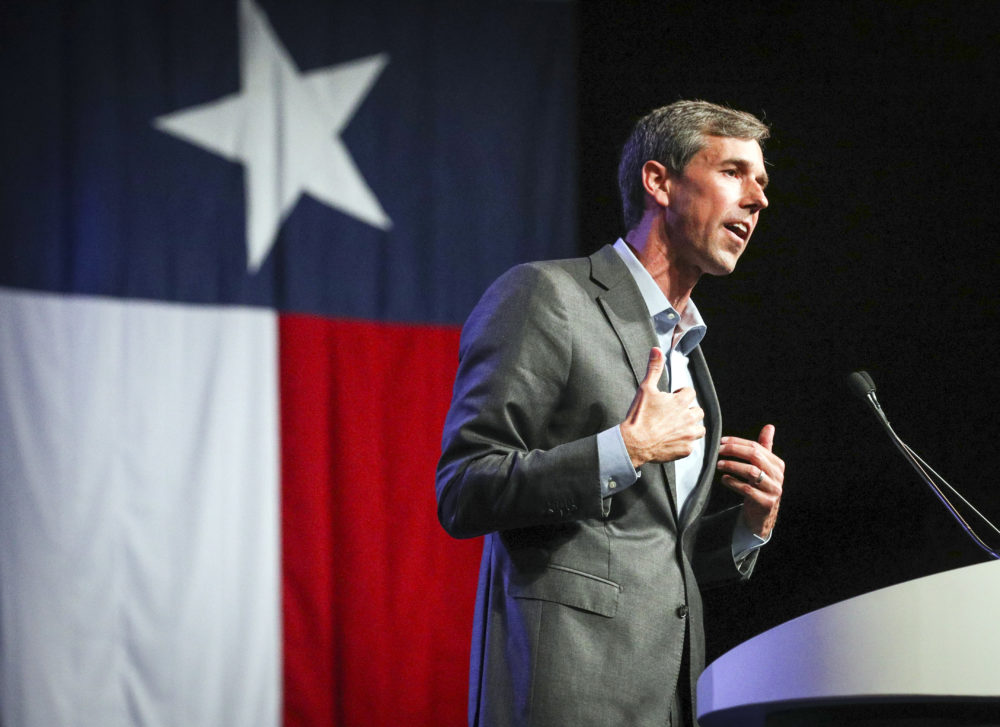
Beto O’Rourke will formally rejoin the presidential race on Thursday, resuming a campaign that has been suspended for nearly two weeks with what he promises will be a “major address to the nation” from his hometown of El Paso, Texas, where a mass shooting killed 22 people. The Democratic former congressman will outline “the path forward” for his presidential campaign “and for the future of the country.” He will then resume traveling the nation as a 2020 White House hopeful, though his advisers have yet to announce where he’ll go. O’Rourke was campaigning in Nevada on Aug. 3 when a gunman who denounced immigrants in an online screed opened fire at a Walmart in El Paso, a U.S.-Mexico border town. O’Rourke rushed home and has tried to help his city cope. He missed scheduled visits to California, Colorado and Iowa, forgoing the state that opens presidential primary voting during the state fair, when nearly every other Democrat in the crowded presidential field was there. Canceling a high-profile Iowa stop immediately began clamor in Texas and beyond that O’Rourke could scrap his presidential bid and return to Texas to challenge Republican Sen. John Cornyn, who is up for reelection next year. O’Rourke, who became a political star by nearly unseating Republican Sen. Ted Cruz last year, entered the race for the White House with strong buzz and fundraising but has seen both fade. Still, O’Rourke’s campaign manager, Jen O’Malley Dillon, dismissed that notion, saying in a statement to The Associated Press: “Now more than ever, this country needs the honest leadership Beto continues to demonstrate — and that is why he is running for president.”O’Rourke aides also say privately that the El Paso shooting only strengthened the candidate’s resolve to be president since he feels President Donald Trump helped cause it. In a CNN op-ed, O’Rourke noted that the shooting suspect drove more than 600 miles (965 kilometers) to “hunt and kill Hispanic people” and that he “followed a path of vile inspiration that reaches from the darkest chapters of our history and runs directly to the White House today,” despite the Republican president blaming mental illness and video games. “It is on all of us, individually and through the institutions of the press and Congress, to decide what this country will stand for at this defining moment of truth,” O’Rourke wrote in the op-ed. By Will Weissert Associated Press Republished with permission from the Associated Press.
Steve Flowers: 2020 races around the corner
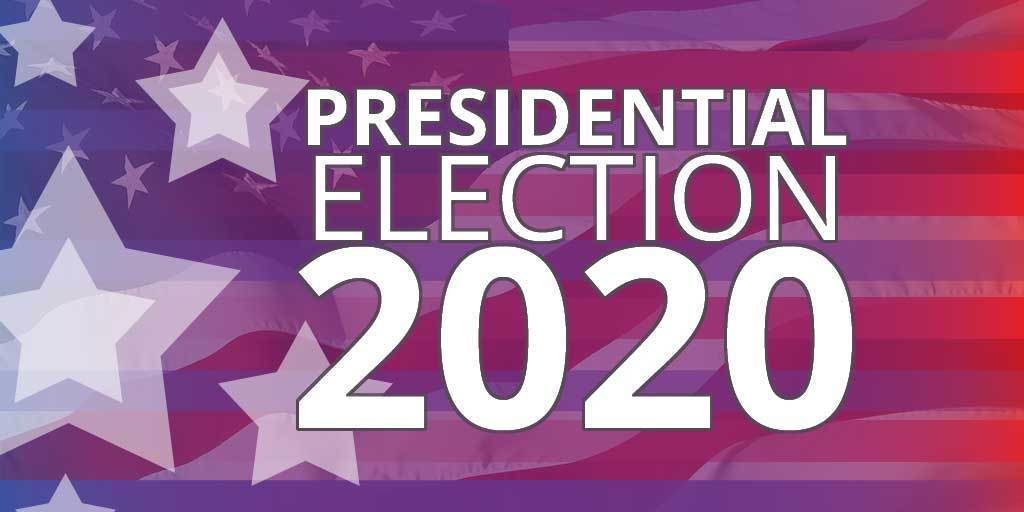
Folks, don’t look now, but the 2020 Presidential Election is upon us. Indeed, as many as 21 Democratic aspirants are already announced and campaigning. They are quite a liberal group as you might expect. Leading the pack of Democrats trying to take Donald Trump out of the White House is an avowed, true socialist, Bernie Sanders. Behind ole Bernie are a host of ultra-liberal U.S. Senators who are socialists wannabes. They hail from either the left coasts of California or New England. Included in the pack of CNN/MSNBC/Stephen Colbert watchers are Elizabeth “Pocahontas” Warren of Massachusetts. She makes Teddy Kennedy look like a conservative. You also have Kamala Harris of California, Senator Cory Booker of New Jersey and losing Texas Senate candidate, Beto O’Rourke, in the race. Our own anomaly Democratic Senator Doug Jones really should run for president next year. He would have a much better chance of winning the Democratic nomination for President than winning a seat in the U.S. Senate from the Heart of Dixie. He has been a liberal Democrat in Alabama his entire adult political life. He has been the soul of the liberal Alabama Democratic Party for decades. He has campaigned and voted for George McGovern, Walter Mondale, Teddy Kennedy, Jesse Jackson, Barack Obama, Bill Clinton and Hillary Clinton. Since he has been in Washington for the past year, he has organized with and voted with Chuck Schumer and Nancy Pelosi. Therefore, he is just as liberal with a much lengthier liberal pedigree than all of the aforementioned liberal Democratic Senators in the race; plus he has a proven Civil Rights record. The scenario that occurred in last year’s special election to fill Jeff Sessions’s seat was a perfect storm that will never occur again. First of all, it was the only show in the country and the first opportunity for liberals all over the country to show their distaste for Donald Trump and the Republican Party. Having Judge Roy Moore as an additional lightning rod just added fuel to the fire. It attracted over $20 million of liberal, left-wing money to Doug Jones. He was able to out spend Moore 21 to 3. That is almost impossible to overcome, plus, with it being a Special Election it became a referendum on Doug Jones versus Roy Moore and the Republican vs Democratic delineation became obscured. During this race, Doug Jones built a national liberal fund-raising base from left-wing America, much like Beto O’Rourke did in Texas. They both have become national stars as Democrats in Red States. Although O’Rourke probably has an edge on Jones in looks and youth. However, recently, Jones appeared on the left leaning Democratic Stephen Colbert Show. Jones may very well be eyeing national politics. Doug Jones, as a lifelong stalwart Democrat, has worked diligently for the State and National Democratic party for most of his adult life. In recent months, he has tried to wrestle some control away from longtime Democratic dictator Joe Reed. It is practically impossible to understand what is going on in the State Democratic Party. Eventually, there may be a new vote on the party chairmanship. The National Democratic Party has mandated a new election due to the clandestine way that Nancy Worley was elected. The state hierarchy has ignored the National Party. There is no doubt that Joe Reed is still in control of the Alabama Democratic Party. You can bet your bottom dollar that he calls all the shots. My guess is that he has his horse picked out of the 21 Democratic presidential candidates. He asked California Senator, Kamala Harris, to be the keynote speaker at his Alabama Democratic Conference June annual event. Therefore, Senator Harris might be a good horse to bet on to win next year’s March third Alabama Democratic Presidential Primary. The Democratic Party in Alabama continues to be a big mess. The bottom line is that on the state level the Party is essentially irrelevant. The odds of a Democratic candidate for President carrying Alabama or a Democratic nominee winning any statewide race in the Heart of Dixie is slim to none. See you next week. Steve Flowers is Alabama’s leading political columnist. His weekly column appears in over 60 Alabama newspapers. He served 16 years in the state legislature. Steve may be reached at www.steveflowers.us.
Beto O’Rourke enters 2020 race attempting bipartisan appeal
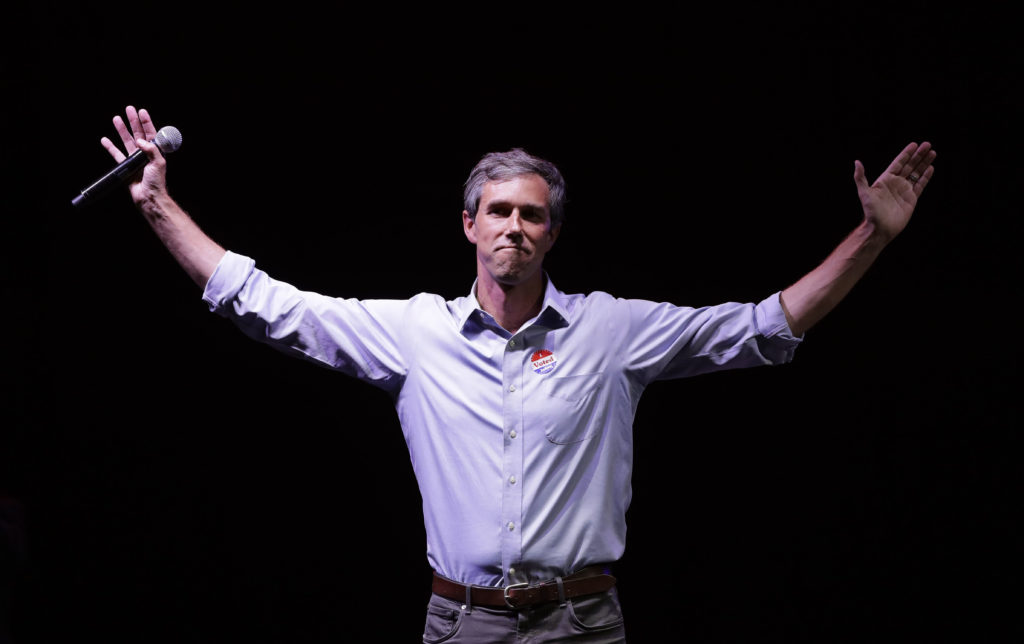
Former Texas Democratic Rep. Beto O’Rourke announced Thursday that he’s running for president in 2020, pledging to win over voters from both major parties as he tries to translate his political celebrity into a formidable White House bid. Until he challenged Republican Sen. Ted Cruz last year, O’Rourke was little known outside his hometown of El Paso. But the Spanish-speaking 46-year-old former punk rocker became a sensation during a campaign that used grassroots organizing and social media savvy to mobilize young voters and minorities. He got within 3 percentage points of upsetting Cruz in the nation’s largest red state — and shattered fundraising records in the process — immediately fueling chatter that he could have higher ambitions. “This is going to be a positive campaign that seeks to bring out the very best from every single one of us, that seeks to unite a very divided country,” O’Rourke said in a video announcement with his wife on a couch. “We saw the power of this in Texas.” Weeks of teasing an announcement are behind him, but O’Rourke now must prove whether the energy he brought to the Texas campaign will resonate on a much larger stage. For all the buzz associated with his candidacy, the former three-term congressman hasn’t demonstrated much skill in domestic or foreign policy. And, as a white man, he’s entering a field that has been celebrated for its diverse roster of women and people of color. O’Rourke’s entry is already reverberating around the crowded field of Democratic presidential hopefuls. California Sen. Kamala Harris singled him out by name in a Thursday email to supporters, noting that a “record number of women and people of color” are running and adding she was looking forward to “substantive debates” with candidates including “the newest to join the race today, Beto O’Rourke.” O’Rourke had never before visited Iowa, which kicks off presidential voting, but said during his first stop at a coffeeshop there Thursday, “I could care less about your party persuasion, your religion, anything other than the fact that, right now, we are all Americans.” His comments were carried live on several cable TV networks, the kind of exposure other 2020 Democrats don’t often get. O’Rourke has promised to travel the country listening to voters, then will return to El Paso, on the border with Ciudad Juarez, Mexico, on March 30 for an official campaign kickoff. O’Rourke joins a large and unsettled 2020 field in which his fundraising prowess, southwestern Texas charm and anti-establishment attitude have quickly turned political heads. He passed just three bills while in Congress, and a lack of governing experience could hurt, but President Donald Trump‘s rise suggests that the U.S. electorate might welcome an outspoken outsider. The sports and entertainment world already had its eye on O’Rourke during the Senate campaign: NBA star LeBron James wore an O’Rourke hat after video of the Texan defending NFL players’ right to protest during the national anthem went viral. Beyonce, a Houston native, endorsed O’Rourke. And he was the only presidential prospect interviewed in February by Oprah Winfrey, who appeared genuinely excited about the prospect of an O’Rourke White House run. Should he parlay a 2018 Senate defeat into a successful 2020 White House campaign, O’Rourke would be the first U.S. politician to do so since Abraham Lincoln lost his Senate bid to Stephen Douglas in Illinois in 1858, then was elected president two years later. Democrats have long dreamed that a booming Hispanic population and droves of Americans moving to Texas from elsewhere could turn the nation’s largest red state blue and transform the Electoral College by making the Republican path to the presidency all but impossible. Another Texas Democrat, former Obama administration housing chief Julian Castro, was already running. Trump has blasted the idea of an O’Rourke presidential try, calling him a “flake” and a “total lightweight” and joking, “I thought you were supposed to win before you run for president.” O’Rourke visited all 254 of Texas’ counties while running for Senate and often drew larger-than-expected crowds, including in heavily conservative areas. It’s a strategy that could serve him well in Iowa, where Cruz campaigned in all 99 counties before winning its caucus during the 2016 GOP presidential primary. O’Rourke’s advisers have reached out to early-state Democratic officials seeking advice for potential hires and strategy. In New Hampshire, home to the nation’s first primary, an O’Rourke adviser asked specifically for guidance on how they might schedule a driving tour through the state should he arrive coming from the West — indicating that a cross-country trip of sorts might be part of a campaign rollout plan. Although he’s entering the race relatively late, O’Rourke has strong national name recognition. Democratic operatives in states with early presidential primaries, including South Carolina and Nevada, formed Draft Beto groups that spent months fundraising and building campaign infrastructure until their candidate was ready. O’Rourke refused donations from outside political groups and shunned pollsters during his Senate campaign though he’s not completely sworn off polling for a presidential run. He nonetheless harnessed growing nationwide popularity to rake in $80-plus million during the Senate bid, including a staggering $38 million from July to September 2018 alone. While challenging Cruz, O’Rourke insisted that he had no interest in running for president. But during his election night concession speech, he let rip the kind of casual swearing that’s become a trademark, declaring to supporters on national television: “All of you, showing the country how you do this, I’m so f—ing proud of you guys,” and promising, “We’ll see you down the road.” Republished with permission from the Associated Press.


